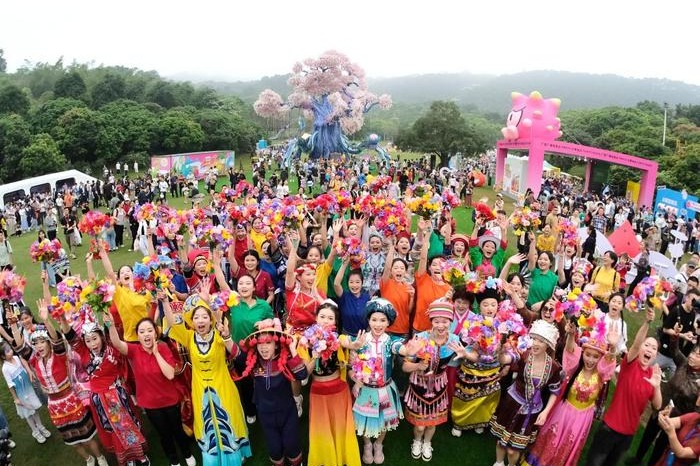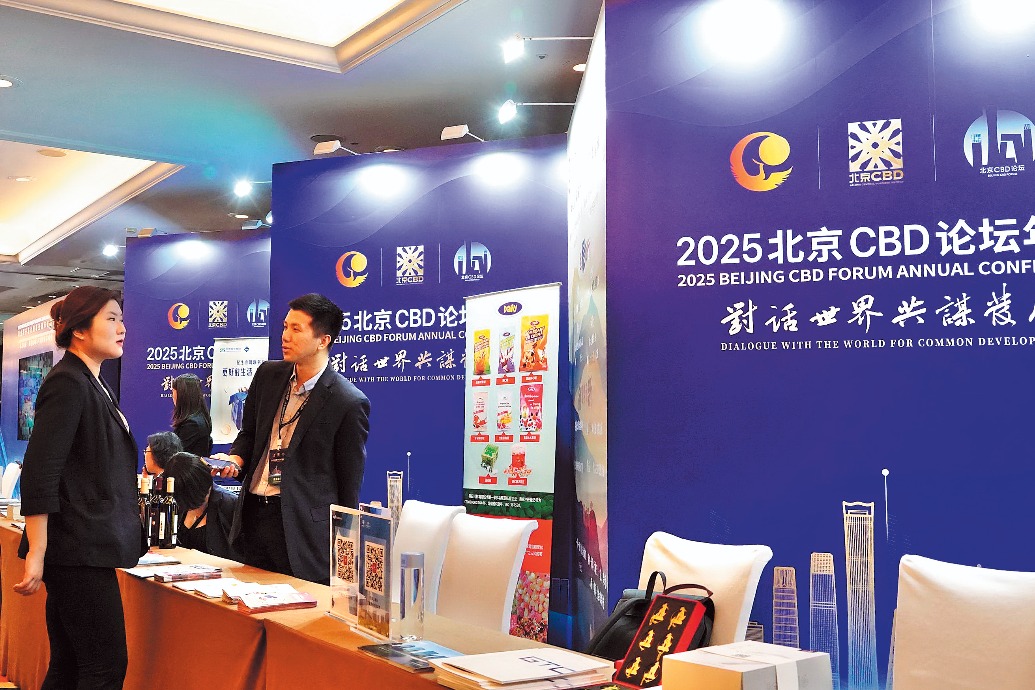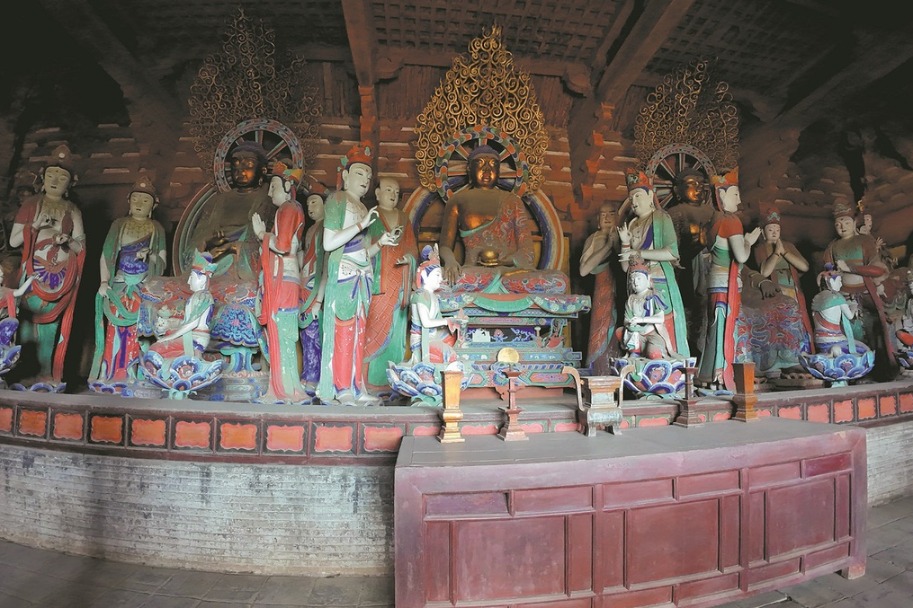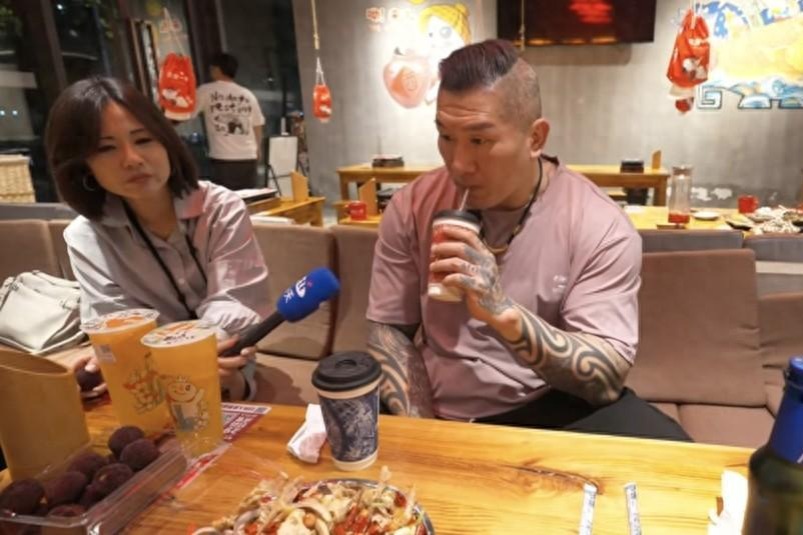Anti-hair loss products show growth potential

When he woke up at 6 am, Zhao Dong, a 27-year-old programmer in Beijing, looked at the hair on his pillow and sighed. He reached for his phone, and placed another order for anti-hair loss shampoo online.
Zhao has been suffering from hair loss for over a year. Apart from anti-hair loss shampoo, he has tried hair growth serum, a hair growth comb, and a hair growth machine, which cost him 6,000 yuan ($853).
The potential value of China's anti-hair loss market is over 400 billion yuan, and the millennial generation is turning into a major driving force, with the increasing life pressure, and the rising purchasing power of young people, market insiders said.
Chen Qiaoshan, a medical analyst at Beijing-based market consultancy Analysys, said: "The young generation stay up late, and usually eat unhealthy food. In addition, they pay more attention to their appearance, so they spend a lot of money on anti-hair loss products."
Data from Alibaba's e-commerce platform Tmall showed that during the Singles Day shopping festival in November, the post-1990 generation became the largest consumption group for hairpieces, taking up 42.41 percent, making them the generation to suffer most from hair loss among Chinese.
The 1980s and 1970s generations also ranked high, accounting for 25.88 percent and 14.28 percent respectively, according to transaction volume on Nov 11. Shanghai, Beijing and Shenzhen in Guangdong province were the top three cities when it came to the purchase of hairpieces.
"The data released simply rubbed salt into my wounds. Increasing work pressure, staying up late and erratic hours are causing my hairline to recede. I would spend money on whatever makes my hair grow back," Zhao said.
Data from market consultancy iiMedia Research showed that from 2017 to 2018, those suffering from hair loss aged between 26 and 30 took up 41.9 percent, becoming the largest among all age groups.
As is shown by research company CBNData in Shanghai, in 2019, the online consumption volume of anti-hair loss products has been growing, and the number of consumers surged by 40 percent year-on-year. The post-1990 generation turned into a major consumption power, taking up over 40 percent of online transactions.
Specifically, their anti-hair loss choices are diversified. Young female consumers favor hairline filling powder, while male consumers tend to buy hair fiber powder. In the past three years, young consumers' anti-hair loss consumption have experienced structural changes, and they are now more willing to buy relatively expensive products, such as scalp essence and high-tech hair growth machines, according to CBNData's report.
Anti-hair loss shampoo, the most traditional choice for those suffering from hair loss, also showed potential growth. Industry data showed that in 2018, the market volume of anti-hair loss shampoo reached 1.13 billion yuan, up 15.3 percent on a year-on-year basis. It is estimated that the market will surpass 1.5 billion yuan by 2020, and the young generation is estimated to be the main consumption power.
And enterprises are adjusting their marketing strategies to target young consumers. Traditional Chinese herbal anti-hair loss shampoo brand Bawang Group launched an intellectual property (IP)-protected cartoon "Bawang elf family", which was drawn on the product package to attract young consumers. It also teamed up with gaming companies to launch crossover-brand products.
In 2018, it replaced its endorser Jackie Chan with singer Mao Buyi, who is popular among the post-1990 generation, making its brand image look younger.
This year, Bawang held an advertising idea collection activity in universities in China, further enhancing its influence among young adults. Through the activity, the company collects young consumers' thoughts on issues including hair loss anxiety, secrets to make hair denser, as well as their recommended advertising slogans for Bawang.
Luo Tianxiang, public relations manager at Bawang, said: "In recent years, we have been stepping up efforts to revitalize the brand, by focusing on the demands of young people and helping them resolve hair loss problems. As a traditional Chinese herbal brand, we are demonstrating a younger image."
Chen from Analysys noted that the anti-hair loss market among young consumers will continue to expand in the future, as they care a lot about their appearance, but are unwilling to change their unhealthy lifestyle.
"They continue to stay up late, eat junk food, and when their hair falls out, they simply buy more anti-hair loss products," she said.
Today's Top News
- Israel launches attack on Iran's nuclear sites
- Israel conducts preemptive strike on Iran
- The bumpy road of international trade
- China, Africa pledge to strengthen trade ties
- Li: Bolster Sino-EU cooperation
- Carmakers vow to ensure timely payments for suppliers






























